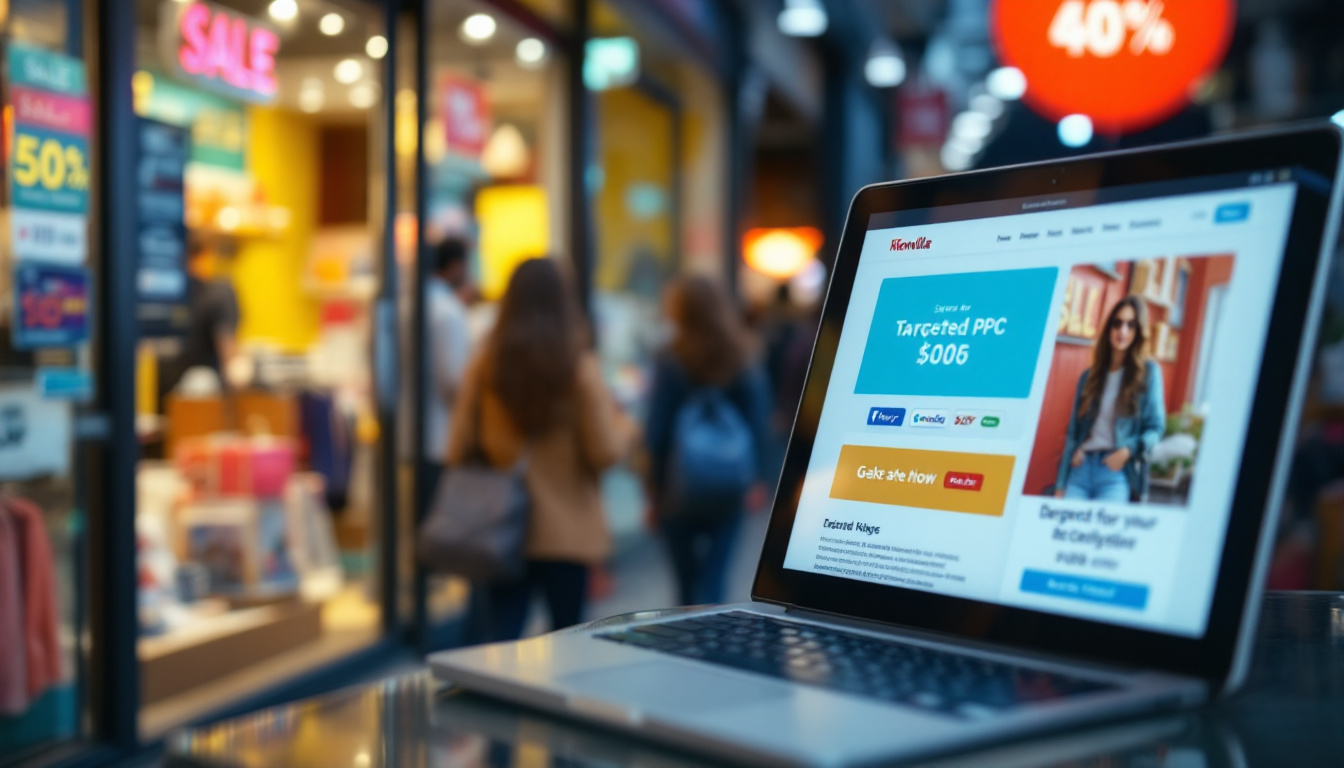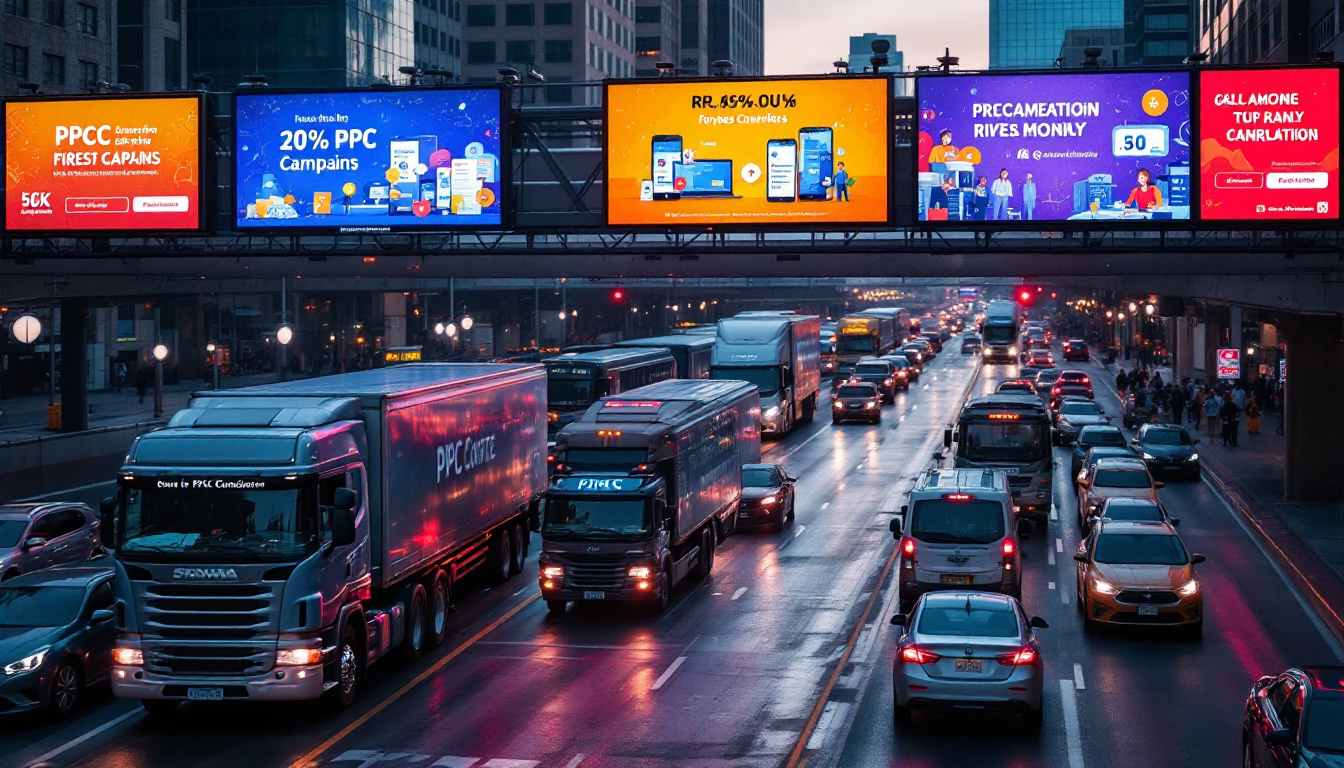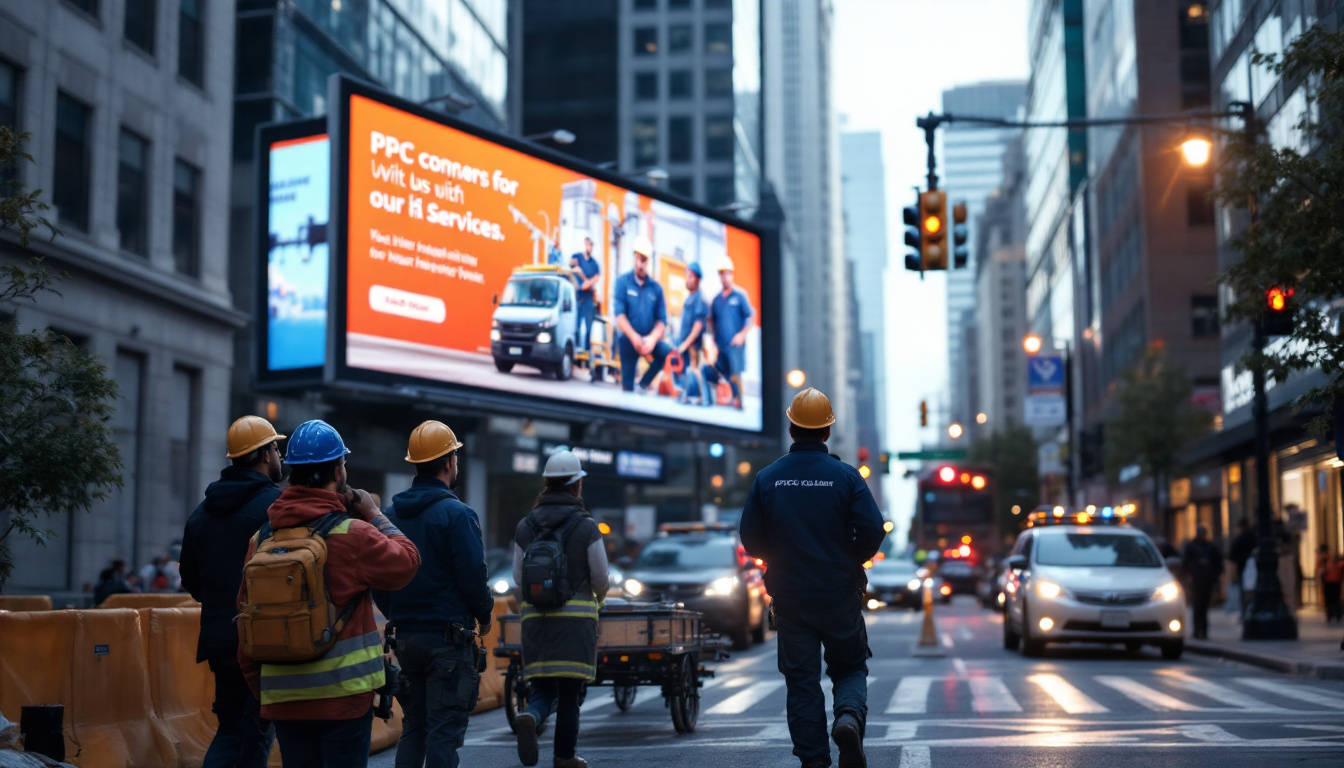How PPC Advertising Boosts Sales for Knoxville’s Retail Businesses

PPC, or Pay-Per-Click advertising, has become an essential strategy for enhancing sales in Knoxville's retail businesses. With the evolving landscape of digital marketing, local retailers are leveraging PPC to gain visibility, attract customers, and ultimately boost sales. This article delves into the impact of PPC advertising on retail businesses in Knoxville, providing insights into its effectiveness and outlining the essential strategies for success.
How PPC Advertising Boosts Sales for Knoxville’s Retail Businesses
PPC advertising allows Knoxville's retailers to position their products and services prominently on search engine results pages and social media platforms. By utilizing targeted keywords and engaging ad content, businesses can capture the attention of potential shoppers right when they are looking to make a purchase.
One of the most significant advantages of PPC is its capability to deliver immediate results. Once a campaign is set up and activated, advertisements start appearing, generating traffic to the retailer’s website almost instantaneously. This rapid response can lead to increased foot traffic in brick-and-mortar stores and heightened online sales, critical for competing in today’s fast-paced retail environment. Moreover, the flexibility of PPC allows retailers to adjust their campaigns in real-time, optimizing their strategies based on performance metrics and customer engagement, which is essential for maximizing return on investment.
Understanding the Mechanics of PPC Advertising
PPC works on a bidding model, where businesses bid for placement on the search engine results pages. When a user searches for a relevant keyword, the search engine displays the ads from highest to lowest bid until the advertisement is clicked.
Retailers in Knoxville are increasingly using platforms like Google Ads and Facebook Ads to reach their target audience effectively. By selecting localized keywords that reflect their business offerings and geographical area, they can narrow down their audience, ensuring that the ads are displayed to potential customers within Knoxville. Additionally, the use of demographic targeting allows retailers to hone in on specific customer segments, such as age, gender, and interests, further enhancing the relevance of their ads and increasing the likelihood of conversions.
The Importance of Keyword Research
Keyword research is paramount in a successful PPC campaign. Retailers must identify both high-traffic and niche keywords that resonate with Knoxville shoppers. This involves using tools such as Google Keyword Planner or SEMrush to analyze what terms local customers are searching for related to retail.
For example, a shop selling handmade crafts might target keywords like "Knoxville handmade gifts" or "local craft store Knoxville." By incorporating these keywords into their ads, retailers can increase their chances of appearing in relevant searches, driving qualified traffic to their stores. Furthermore, understanding seasonal trends and local events can also inform keyword strategies, allowing retailers to capitalize on specific shopping periods, such as the holiday season or local festivals, which can significantly boost their visibility and sales during peak times.
The Role of Digital Marketing in Retail Growth
In today’s digital age, the role of digital marketing cannot be overstated. Online presence is an essential component of retail growth, and PPC advertising serves as a powerful tool in this regard.
Many retailers may still rely solely on traditional marketing methods; however, businesses that embrace digital marketing, especially PPC, set themselves apart by reaching a broader audience. A robust online marketing strategy often enhances brand awareness, increases customer engagement, and drives conversions. Furthermore, the ability to track and analyze data in real-time allows retailers to make informed decisions, optimizing their marketing efforts for better results. This agility is crucial in a fast-paced retail environment where consumer preferences can shift rapidly.
Integrating PPC with Other Digital Marketing Strategies
PPC advertising should not exist in a vacuum. When combined with other digital marketing efforts such as social media marketing and content marketing, the benefits compound. For instance, running PPC ads promoting a special sale while simultaneously posting on social media can create more significant buzz and excitement about the retail offerings.
This multi-channel approach allows Knoxville retailers to reinforce their message across various platforms, maximizing reach and effectiveness. Additionally, integrating PPC with email marketing campaigns can further enhance customer retention. By targeting previous customers with tailored ads and exclusive offers, retailers can encourage repeat purchases while simultaneously attracting new clientele. The synergy created by these combined strategies not only amplifies the marketing message but also fosters a deeper connection with the audience, ultimately leading to increased loyalty and sustained growth.
Crafting Campaigns to Highlight Local Shops and Products
Crafting effective PPC campaigns requires a focus on local products and shops, which is vital for retailers looking to connect with their community. Highlighting unique offerings can set retailers apart from larger online competitors. By emphasizing the distinctiveness of local goods, retailers can tap into the growing consumer trend of supporting small businesses, which not only helps the local economy but also fosters a sense of pride among residents.
Effective campaigns often include promotional messages that emphasize local value, such as limited-time offers or special events hosted by the store. Retailers can create ads that share their story, involve local influencers, or showcase customer testimonials to build credibility and foster a sense of community. Engaging narratives about the origins of products or the artisans behind them can resonate deeply with potential customers, encouraging them to choose local over generic alternatives. Additionally, incorporating seasonal themes or community events into the campaign can create a timely connection that draws in shoppers looking for unique gifts or experiences.
Utilizing Ad Extensions and Local Listings
Maximizing the use of ad extensions in PPC campaigns further enhances exposure for local shops. Ad extensions can provide additional information, such as address, phone number, or even specific promotions. For example, a Knoxville retailer can utilize location extensions to showcase their exact address and make it easy for shoppers to navigate to their store. This strategic use of ad extensions not only helps in attracting foot traffic but also allows retailers to highlight their unique selling propositions, such as locally sourced products or exclusive in-store discounts.
This not only elevates the chances of increasing foot traffic but also provides critical information directly in the advertisement, improving user experience and engagement. Furthermore, integrating local listings with accurate and up-to-date information can significantly enhance visibility in search results. Retailers should ensure their Google My Business profiles are optimized, including high-quality images, business hours, and customer reviews. This comprehensive approach not only aids in search engine optimization (SEO) but also builds trust with potential customers who are increasingly reliant on online information to make shopping decisions. By weaving together these elements, local retailers can create a robust online presence that complements their physical storefronts, ultimately driving sales and fostering community loyalty.
Using PPC to Target Shoppers and Bargain Hunters
Identifying and targeting specific demographics is a crucial part of any successful PPC campaign. Knoxville retailers can design their ads to appeal to both general shoppers and bargain hunters, tailoring messages accordingly. By understanding the unique motivations and behaviors of these groups, businesses can create more effective marketing strategies that resonate with their audience.

For instance, bargain-hunting shoppers are often motivated by discounts and sales. Creating compelling ad copy that highlights price reductions or exclusive deals can entice these customers to visit a store or make a purchase online. Additionally, incorporating urgency into the messaging—such as limited-time offers or countdown timers—can further drive action, as it creates a fear of missing out (FOMO) that is particularly effective in the competitive retail landscape.
Segmenting Audiences for Enhanced Results
Segmenting audiences based on their behavior and preferences allows for more personalized advertising. Retailers can use data analysis to determine who their best customers are, enabling them to tailor their PPC messages to suit the interests of different audience segments. For example, a retailer might identify a group of customers who frequently purchase seasonal items and target them with ads featuring upcoming seasonal sales or new arrivals.
This targeted approach can significantly increase click-through rates and conversion rates, maximizing the effectiveness of each advertising dollar spent. Furthermore, leveraging tools like remarketing can help retailers re-engage users who have previously interacted with their website but did not complete a purchase. By serving tailored ads to these potential customers, retailers can remind them of their interest and encourage them to return, ultimately boosting the chances of conversion and fostering brand loyalty.
Measuring ROI for Retail Advertising Campaigns
Measuring the return on investment (ROI) of PPC campaigns is essential for understanding their effectiveness. Retailers must track metrics such as click-through rates, conversion rates, and overall sales generated from PPC efforts.

Tools like Google Analytics provide valuable insights into how PPC campaigns are performing, offering data that can inform future marketing strategies. Determining the exact ROI helps retailers make data-driven decisions, optimizing budgets, and improving ad performance.
Strategies for Effective Tracking
Setting up conversion tracking in Google Ads allows retailers to monitor specific actions taken by users after clicking on their advertisements. This granular level of tracking ensures that businesses can see which ads drive the most valuable interactions, such as purchases or sign-ups.
In addition, utilizing UTM parameters in URLs can track the effectiveness of different campaigns and accurately attribute success to specific ads or keywords, ensuring retailers understand where to allocate their marketing resources.
How We Drive Growth for Knoxville’s Retail Sector
In conclusion, embracing PPC advertising is transformative for Knoxville's retail businesses. By implementing smart strategies focused on local product offerings, targeting the right audience, and measuring the success of campaigns, retailers can effectively enhance their sales and attract new customers.
Collaborating with experienced digital marketing teams can help retailers navigate the complex landscape of PPC advertising and develop campaigns that align with their goals and community values.
As Knoxville continues to grow, utilizing the full potential of PPC advertising will be imperative in driving retail growth and establishing a lasting presence in the local market.

As a Google Ads expert, I bring proven expertise in optimizing advertising campaigns to maximize ROI.
I specialize in sharing advanced strategies and targeted tips to refine Google Ads campaign management.
Committed to staying ahead of the latest trends and algorithms, I ensure that my clients receive cutting-edge solutions.
My passion for digital marketing and my ability to interpret data for strategic insights enable me to offer high-level consulting that aims to exceed expectations.




















